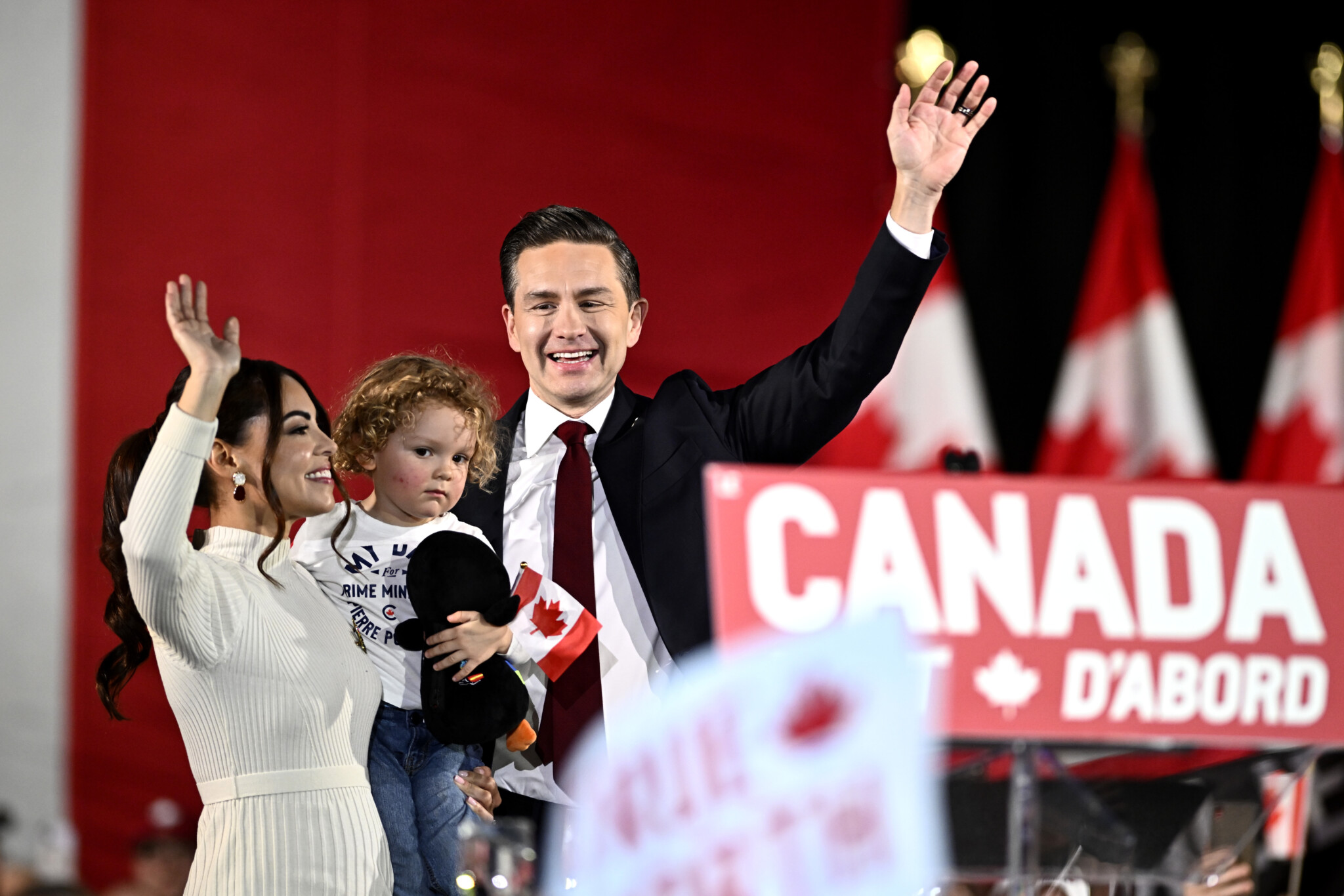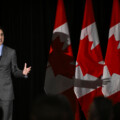Nearly four years ago, I first suggested in a column that younger Canadians could be won over by Conservatives. At the time, most people thought I was nuts. But as Pierre Poilievre took the Conservative Party of Canada under his reins, polling eventually caught up with what I’d been seeing and hearing for a while. By May 2022, Ekos showed the CPC with a stunning nine-point lead in the 18-34 demographic, despite only leading by six points overall.
From there, Millennial and Gen Z support for the Poilievre Conservatives soared to unprecedented highs. The trend entirely inverted not just the massive youth support that elected Trudeau back in 2015, but assumptions about age and conservatism across the Western world. Eventually, it became common political knowledge that younger Canadians were one of Poilievre’s most loyal demographics. Now, there are warning signs that assumption could be upended.
Recent polling by Angus Reid suggests the CPC could be at risk of reversing its progress with younger Canadians—even younger men. Net favourability scores (represented as favourable minus unfavourable) show presumed Liberal leadership frontrunner Mark Carney at +18 with men ages 18 to 34 while Poilievre clocks in at -23. For women ages 18 to 34, Carney scores at +11 while Poilievre is at -36.
Is this a polling fluke, or could Poilievre really be at risk of bleeding Millennial and Gen Z voters back to the Liberals? While Conservatives’ instincts are likely to dismiss these numbers as the former scenario and point to voter intention polls that still show the CPC ahead in this age group, they should take the latter possibility seriously and act quickly if they want to keep younger voters inside the big blue tent.
Last summer, a familiar pattern began to emerge. Just as I’d first detected young Canadians’ openness to, and eventual support for, Conservatives, I began to observe warnings of weakness. In late August, I posted on X: “A key to political analysis that’s ahead of the curve is careful listening in social settings. You have to pick up on repeat sentiments and phrases well before they become headlines or poll questions. One I’ve been increasingly hearing this summer: ‘politically homeless.’”
Just like four years ago, few people took me seriously. Many Conservatives had, in just a couple short years, gone from thinking capturing younger support was impossible to the hubristic position that their votes were practically guaranteed. Perhaps this is why, over time, younger Canadians and the issues that matter most to them appeared less and less important to Poilievre’s CPC, with the demographic seemingly left on the backburner as strategy focused elsewhere.
Poilievre first gained youth support through his economic populist messaging and focus on housing, but both these receded into the background in favour of a near-sole focus on “axe the tax”—a theme that doesn’t resonate as much with younger voters who can barely afford cars to drive, let alone larger homes to heat. The CPC strategy seemed to think “axe the tax” could be a stand-in for all cost of living issues, but rightly skeptical younger voters are all too used to politicians saying the right things about housing affordability one minute and doing little to nothing about it in practice.
While Poilievre initially hit the ground running after his leadership with strong housing proposals, those have slowed over time and failed to become significantly bigger and bolder as Liberals belatedly woke up to the issue. Talk of “gatekeepers” that particularly resonated with younger Canadians wasn’t used to call out conservative provincial and municipal leaders who posed serious roadblocks to boosting supply. The rhetoric began to ring hollow.

A supporter gets a sign before Conservative Leader Pierre Poilievre’s Canada First rally in Ottawa, Feb. 15, 2025. Justin Tang/The Canadian Press.
Meanwhile, the party did publicly call out 17 of its own MPs for supporting their communities’ efforts to access the Housing Accelerator Fund in a move that seemed steeped in petty partisanship and gamesmanship rather than concerns over affordability.
Right now, the reality is that Poilievre’s proposed housing solutions don’t differ significantly from those of the top Liberal leadership contenders, even if that’s only the case because they’ve largely copied his playbook. Crucially, the CPC missed a major opportunity to differentiate themselves on a key file: immigration.
While it was obvious for some time that unsustainable immigration levels, particularly uncapped temporary foreign worker and foreign student visas, were a major issue, Conservatives shied away from acknowledging it, let alone proposing solutions. They likely feared being called xenophobic or racist, but as they avoided the crisis, it was younger Canadians who suffered the most.
First, housing costs continued to soar thanks to excessive demand. Next, employment, particularly for young professionals and students, cratered and real wages fell.
Even today, while Poilievre’s Conservatives finally acknowledge immigration now that polling tells them it’s safe and Liberals have made the first concrete moves (albeit after significant small-c conservative media and public pressure), they don’t convincingly own the issue. There are still not-that-long-ago videos circulating on social media of Poilievre supporting international students being able to work more than 20 hours per week, and his most recent pledge to cut immigration to 250,000 not only likely doesn’t go far enough to make up for the excesses of Trudeau’s Liberals, but isn’t clear on whether the number includes temporary workers and students.
While Poilievre Conservatives’ signature attack dog style and preference for clear, pointed communication lessened on the housing and immigration fronts, it continued to proliferate elsewhere. As the party became more confident it was all but guaranteed not just a win, but a majority, it fell back on a nasty old habit: shrinking the tent via purity testing. Even former CPC leader Erin O’Toole wasn’t safe from being publicly lambasted for perceived ideological infidelity.
This growing culture of insularity and of open hostility to anyone deemed not “true blue enough” unnecessarily ostracizes and demeans many younger voters who bought into the new Conservative coalition Poilievre appeared intent on building during his leadership race. Critically, many Millennials and Gen Z are either swing voters or would-be first-time Conservative voters.
Meanwhile, the party never did get around to making a serious play for younger women, so far overlooking opportunities to win their votes on issues like family formation and childcare.
The good news is that Carney is by no means a leader intimately attuned to younger Canadians’ wants and needs. He also has major vulnerabilities on this front, and they’re very likely to become more exposed as the public actually gets to know him. It’s not too late for Poilievre and the CPC to turn back the momentum, re-focus their message, and show Millennials and Gen Z they really do have their back. This is a generational opportunity not just to win the next election, but to secure the party’s future—Conservatives can’t afford to blow it.








